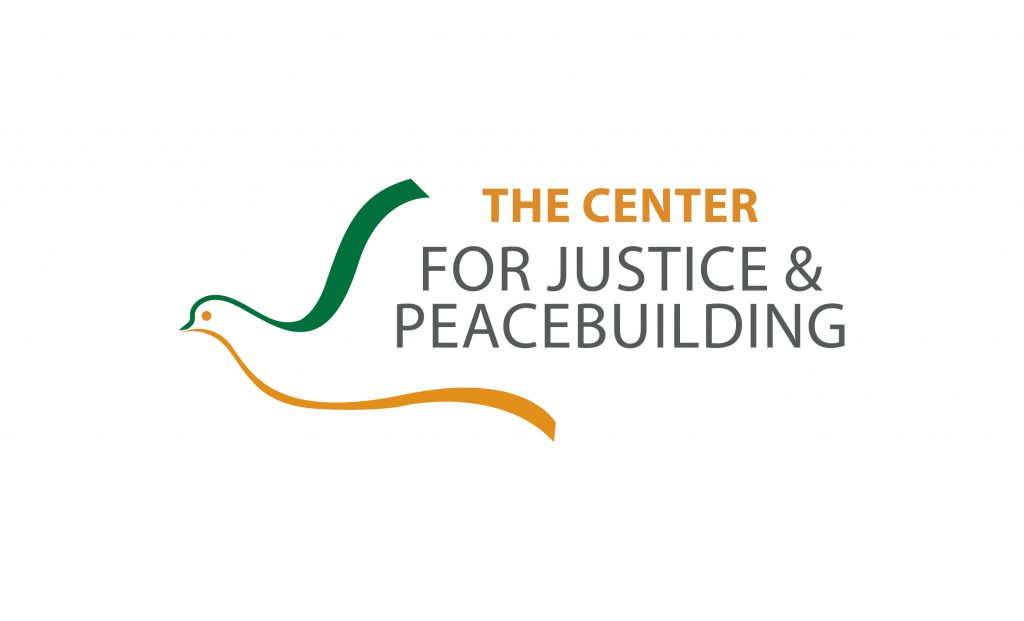This month, seven master’s candidates in the conflict transformation and restorative justice programs at Eastern Mennonite University’s (EMU) Center for Justice and Peacebuilding (CJP) presented final capstone projects on their practicum work. Their experiences include restoring relationships between people and the land, evaluating gender-specific humanitarian conditions in Haiti, and developing a community-led mental health program.
Read about their practica learnings below.
Prerna Barua: Sexual Harms and Restorative Justice – Reimagining Work with Different Stakeholders
Prerna spent her capstone project with Counsel to Secure Justice in New Delhi and Ahimsa Collective in California working with children who have been sexually harmed, as well as corresponding with incarcerated persons who have harmed.
Hannah Kunde: Uprooted and Unsettled: An Arts-Based Exploration of Inner and Outer Landscapes*
Hannah’s two-part practicum began at Silver Run Forest Farm in Harrisonburg, and ended in her birthplace in Seattle, Washington, where Hannah continued exploring themes related to restorative justice, ecology, and identity through work at the Beacon Food Forest and CARW (the Coalition of Anti-racist Whites), and through research and poetry.
This practicum is rooted in the understanding that the “placement” refers to the literal geopolitical context of the place itself and understands the local grassroots organizing efforts as manifestations of what restorative relationships between and among people and the land can look like. In addition to reflection on this practicum experience, the hope is that this capstone will engage the audience in reflecting on the inner and outer landscapes of their own lives and places of living.
*Language for the title is inspired by Hannah’s friend and mentor, Beth Schermerhorn, as well as Eva Mackey’s book “Unsettled Expectations: Uncertainty, Land and Settler Decolonization.”
Chris Lenshyn: Hey, How Are You? – COVID 19, Mental Health, and Community Restorative Practice
Leading the development of a community based, community-led mental health program grounded in restorative justice principles during a pandemic has gifted Chris with formative lessons for the day-to-day, moment-to-moment practice of being a peacebuilding practitioner by vocation. His capstone presentation dug into the continuing development of a mental health project crafted to be sustained in a post-COVID world and how this work has informed Chris’s other work of developing, designing, and facilitating restorative community dialogues in communities impacted by homelessness and the development of a street community advisory table in Abbotsford, British Columbia, Canada.
Claudia Moreira: My Journey as a Peacebuilder in the Year of the Covid-19 Pandemic
Claudia shared about her journey as a peacebuilder and leader in Tearfund, a Christian humanitarian organization, during the COVID-19 pandemic. She endeavored to experiment and implement a peacebuilding, adaptative, trauma-informed approach to her leadership. Her project had three pillars: continued learning, self-care, and sharing knowledge with others inside Tearfund and with Christian leaders.
Olivia Paul: Gender Mainstreaming in the Humanitarian Program Cycle: Learnings From the 2021 Haiti Humanitarian Needs Overview
Currently, the Haiti office of UNWomen is participating in an analysis process that will lead to the country’s Humanitarian Needs Overview (HNO). This analysis will inform and contribute to the development of a humanitarian response strategy for the year 2021. Through focus groups, interviews with key informants and desk reviews, the country office will collect data on gender-specific humanitarian conditions, vulnerabilities, demands, and needs.
Working in the field of gender and peacebuilding has always been Olivia’s goal. Even though humanitarian-oriented, this process contains both development and peacebuilding work since all the crises will affect the social organization at different levels, including at the micro, meso, and macro levels. As the agency’s consultant, Olivia presented her takeaways and difficulties from the collection of data aiming to listen directly to women, girls, and people living with disabilities in communities in order to support the gender, age, and disability mainstreaming of the HNO.
Oscar Siwali: Women Community Leaders’ Experiences during COVID-19 in South Africa
Oscar shared lessons from focus group discussions exploring conflicts experienced from home to community, and skills used to bring peace. COVID-19 has brought new levels of challenges in South African townships, and the lockdown period which started around March 15 brought its own challenges resulting in community tensions and violence. Amid all this are women community leaders that have been trained as community mediators and interrupters of community conflicts and violence. His research-based practicum explored the COVID-19 conflict management and mediation experiences of these women in leadership positions in grassroots community leadership settings.
Nicole Litwiller: Bikes for Neighbors: Pedaling Towards a Sustainable & Equitable Program
Nicole’s work with Bikes for Neighbors, an initiative housed within the Shenandoah Valley Bicycle Coalition, consisted of a diversity of tasks from creating a program logo, to engaging with the local bike shops to envisioning ways for the program to sustain itself into the future. She shared reflections on learning more about bike culture (and its many inequities), her initial plans and goals, and what materialized within her seven months with the program.
